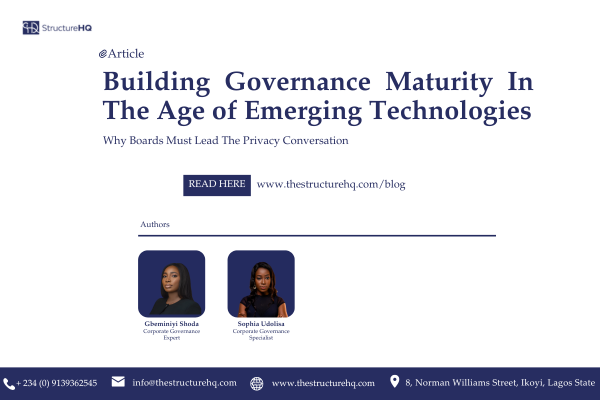PUBLIC COMPANIES AND CAPITAL MARKET OPERATORS ON THE TRANSMUTATION OF INDEPENDENT NON-EXECUTIVE DIRECTORS AND TENURE OF DIRECTORS
In a significant move to bolster corporate governance standards, Nigeria’s Securities and Exchange Commission (SEC) has released a crucial Guidance Note impacting director appointments and tenure. Following up on its circular from June 19, 2025, the new directive issued on July 1, 2025, introduces a strict ban on certain director transitions and sets new term limits for board members of public companies and key financial institutions.
This guidance is designed to enhance board independence, objectivity, and overall effectiveness in Nigeria's capital market.
Who Do These New SEC Rules Affect?
The directive is specifically addressed to two main groups:
- All Public Companies (PLCs) in Nigeria.
- Significant Public Interest Capital Market Operators (CMOs). These are systemically important firms, such as those operating Financial Market Infrastructure (FMI) like clearing houses, settlement platforms, trading venues, and data providers, which have been designated by the SEC as Significant Public Interest Entities (SPIEs).
While private companies and other CMOs are not mandated to comply, the SEC strongly encourages them to adopt these rules as a benchmark for best practices in corporate governance.
The Core Changes: A Breakdown
The SEC's Guidance Note introduces two transformative changes aimed at preventing conflicts of interest and ensuring fresh perspectives on corporate boards.
1. The Ban on Independent Director "Transmutation"
The SEC has observed a growing trend of Independent Non-Executive Directors (INEDs) later being appointed to executive roles like Executive Director (ED) or Managing Director/CEO within the same company or its group.
The Commission argues this practice severely compromises the independence and objectivity expected of an INED. An Independent Director's primary duty is to hold executive management accountable, and the potential for a future executive role creates a clear conflict of interest.
As such, the SEC now explicitly prohibits INEDs from being appointed as an ED or MD/CEO within the same PLC or FMI corporate group.
2. Stricter Director Tenure and "Cooling-Off" Periods
To prevent board entrenchment and encourage new leadership, the Commission has introduced firm term limits:
- Maximum 10-Year Tenure: Directors of Capital Market Operators designated as SPIEs may now serve for a maximum of 10 years on the board of a single entity.
- Maximum 12-Year Group Tenure: The total time a director can serve within a single corporate group (e.g., holding company and its subsidiaries) is capped at 12 consecutive years.
- Mandatory 3-Year "Cooling-Off" Period: A former CEO or ED who has completed their term limit cannot be appointed as the Chairman of the Board until after a mandatory 3-year "cooling-off" period.
- 4-Year Chairman Limit: If appointed as Chairman after the cooling-off period, their tenure in the Chairman role is limited to a maximum of 4 years.
The SEC has clarified that all years a director has already served will be counted when applying these new tenure limits.
What This Means for Your Board
These new directives require immediate attention from boards at all PLCs and significant CMOs. Key actions to consider include:
- Reviewing your current board composition and director tenures against the new limits.
- Updating your board nomination and succession planning policies to reflect the ban on INED-to-executive transitions.
- Revising your corporate governance framework and board charters to align with these new standards.
By implementing these rules, the SEC aims to foster a more robust, transparent, and accountable corporate ecosystem in Nigeria.
If you have any questions, need additional information, or guidance, please email compliance@thestructurehq.com
Or Contact:





.jpg)







